After being questioned about "Partygate," Boris Johnson is no longer in significant political peril.
March 22, 2023Tweet
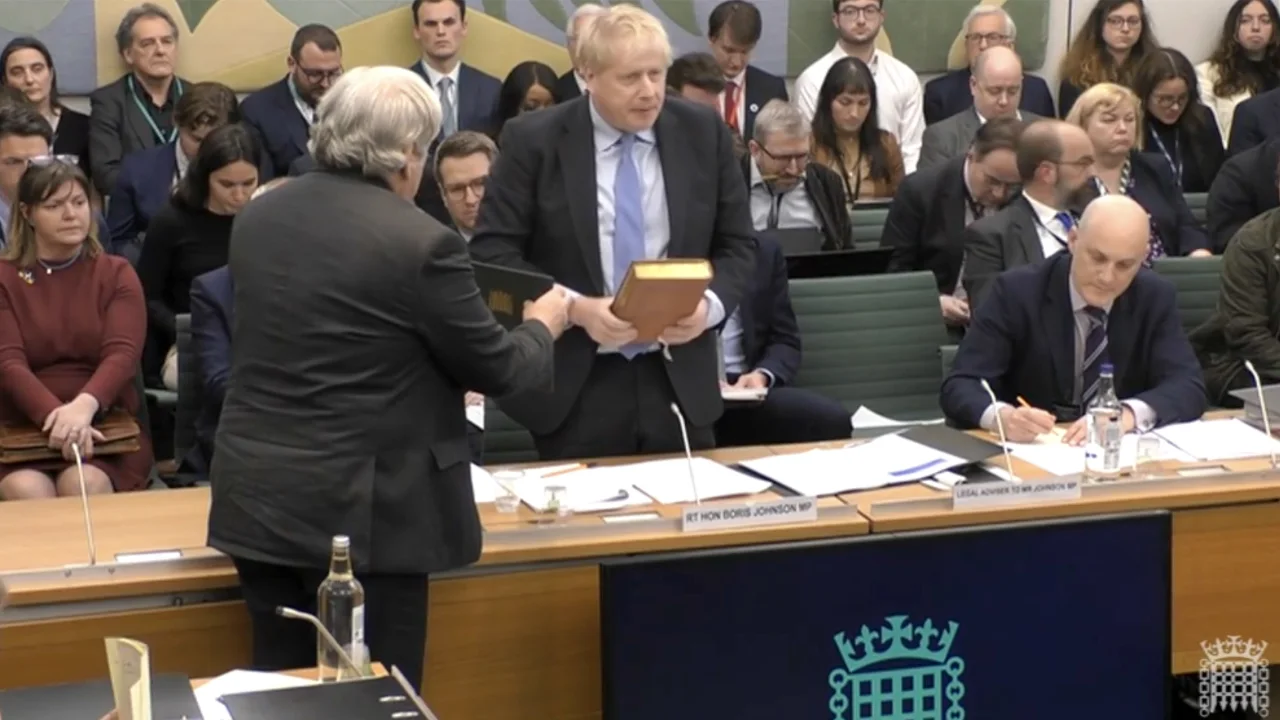
Boris Johnson faced over three hours of grilling before a parliamentary committee that is investigating whether or not he knowingly misled Parliament regarding breaches of Covid-19 guidance and rules inside 10 Downing Street when he led the country. The question is whether or not Johnson knew at the time he was making a false statement to Parliament when he said in December 2021 that guidance and rules had been followed "at all times." Johnson's defense is three-pronged: he said it is "illogical" he could have known at the time that rules or guidance were broken because much of the photographic evidence the committee had published was taken by the Downing Street official photographer. He also suggested that hindsight is a wonderful thing, so it was only after these investigations that it became clear Johnson's statement was incorrect.
The most important details in this text are the heated exchanges between Johnson and the committee members, who will decide if Johnson knowingly misled Parliament and what punishment he should receive. Johnson's evidence was met with a frosty reception from the members of the committee, even those from his own Conservative party. He was admonished for his rambling answers and ridiculed for the perceived logical inconsistencies in his defence. Some of the harshest questioning came from Conservative MPs, who want to be seen as impartial in a cross-party committee, but are furious with Johnson for dragging the party's poll ratings down and destroying trust in Conservative governance. People in the committee room laughed at the absurdity of what was happening – a photo of Johnson being presented with a birthday cake and confirming his interior designer was present at the event.
Even if Johnson's political career is over, he is still capable of causing divisions in the United Kingdom's ruling party. Johnson's job on Wednesday was to provide sufficient doubt that he lied in Parliament, and he did so by providing a plausible account that when he told Parliament no rules or guidance were broken, he sincerely believed that to be the case. He apologized for inadvertently misleading the committee, but said that to say he did it recklessly or deliberately is untrue. Poll after poll shows that the public believes Johnson broke Covid rules, and members of his own party believe he should not return as PM. How much this matters in the broader context of the Partygate scandal, trust in politics and Johnson's integrity is another question.
The scandal surrounding Boris Johnson has caused him to lose popularity, but it is important to remember why this scandal resonated so much with people. Many Brits believe that while they were locked up at home, doing their best to stop the spread of a deadly disease and being unable to say goodbye to relatives who died, Johnson and his Downing Street team were partying as though they were above the rules. The evidence against Johnson is greater than the evidence in his defense, but the question being asked of the committee is both narrow and specific, but also opaque. Wednesday's hearing was about whether or not the committee and wider public believe Johnson is an honest and trustworthy person or whether he is lying to spare his reputation further damage. In the eyes of the British public, that question has already been answered.
Johnson Boris-johnson Covid-19 London
Comments
Related news

Israel bombs Gaza after intercepting rockets.
Read more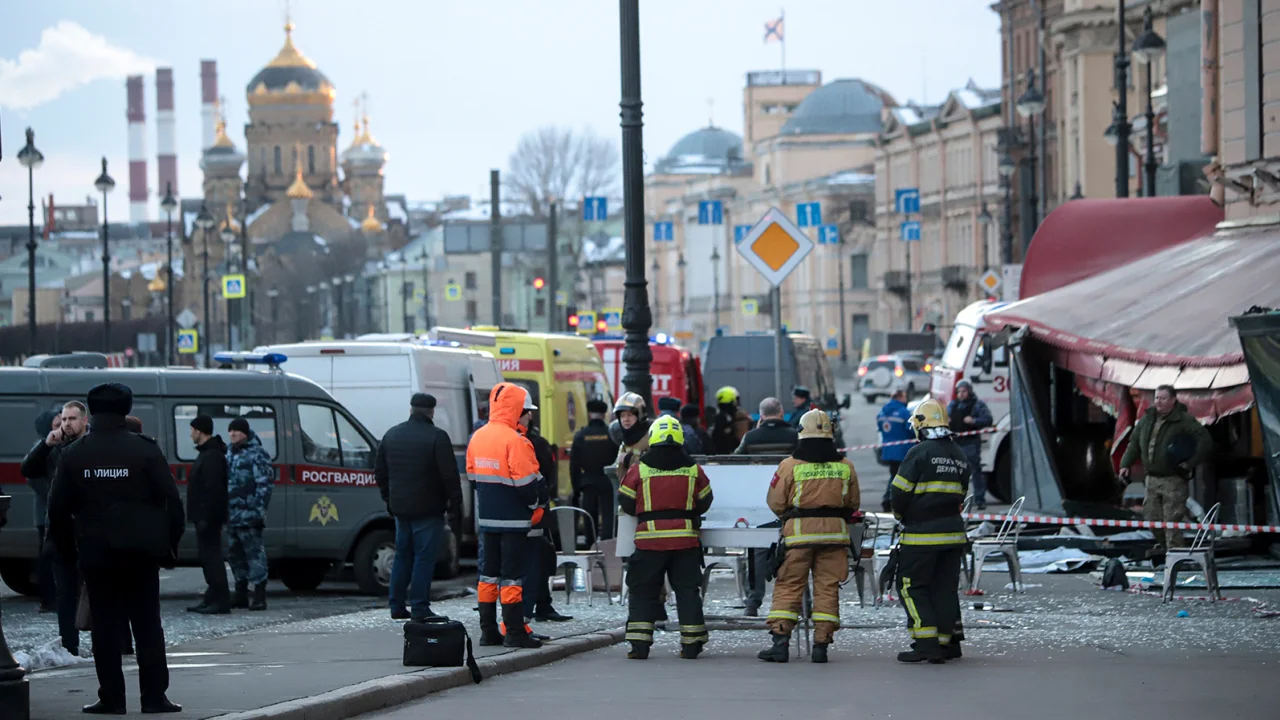
Russia detains an anti-war protestor after an explosion that killed a hawkish blogger
Read more
Oil prices spike after an unexpected OPEC action.
Read more
US banks should disclose significant deposit losses - Bloomberg
Read more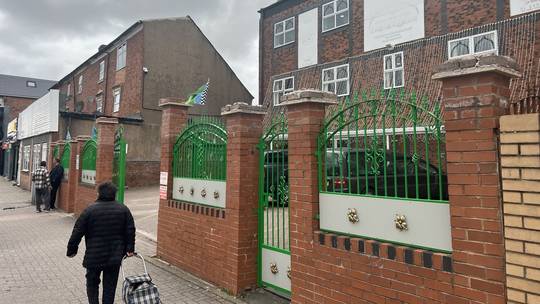
After exiting a UK mosque, an elderly man was set on fire.
Read more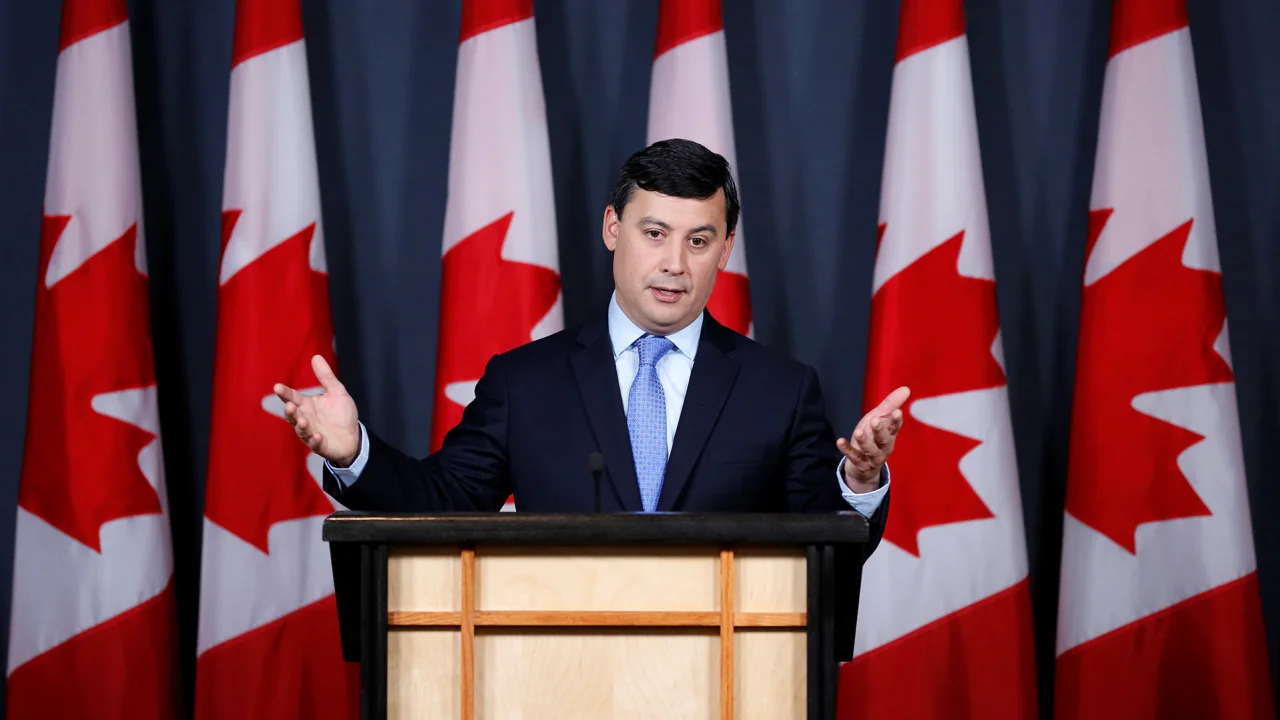
Canada summons China's ambassador in response to charges of political meddling.
Read more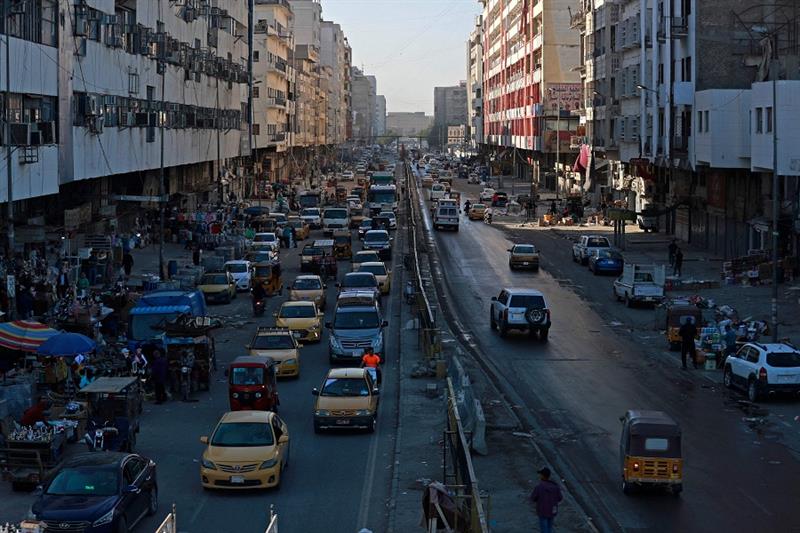
Iraq's future is unclear 20 years after American invasion because of its battle scars.
Read more
Investigation: Britain lied about their being no civilian casualties in Iraq.
Read more
Protests erupt in Israel after Netanyahu dismisses a minister who opposed judicial reform.
Read more